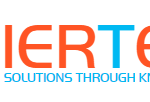Toxicology Subject Matter Expert

Website SierTek
SierTek Ltd. is seeking a Toxicology Subject Matter Expert to support an opportunity for Wright- Patterson AFB, Ohio (remote).
Position Overview:
The Toxicology Subject Matter Expert will support and assistance services to support the conduct of research to address current Airman Systems Directorate, Airman Biosciences Division 711 HPW/RHBA operational needs and MAJCOM-identified capability gaps. The Airman Biosciences Division is an international center for research and technology evaluation in hazard mitigation, public health, contingency operations, performance enhancement, human systems integration, and clinical aerospace medicine disciplines including aeromedical evacuation.
Essential Job Functions
Lead subject matter expert and analyst of research and development projects aimed at improving implementation of in vitro and in silico methods into the safety assessment capabilities of the Air Force.
Apply subject matter expertise to support industrial worker and aircrew/pilot health and safety threat identification and risk management/communication, as well as utilize toxicology principles, and leverage chemical and biological data, to assess risk to airman health and performance in support of the Agile Combat Employment, Emerging Hazards, Patient Movement Optimization & Automation, Aerospace Physiology & Medicine, and any related future initiatives.
Independently conduct and/or direct technical activities, and/or assist higher levels on challenging and innovative decision process (familiarity with in vivo as well) quantitative biology in toxicology and mathematical model projects or technical program development.
Oversee design and execution of laboratory and field studies to improve measurements of occupational exposures.
Prepare study proposals and protocols, review activities and study data for quality and ensure adherence to standard operating procedures based on mission requirements supporting R&D efforts.
Actively contribute within a technical team, and lead tasks.
Document work, publish papers, make professional presentations, and support the lead author on major reports/documents supporting Air Force Medical Service policy.
Train, mentor, and work with lower-level technicians, scientists, and engineers.
Design, conduct, and oversee a wide variety of chemical, biological and radiological assessments, utilizing both widely acceptable practices and novel techniques.
Draft proposals and technical reports, prepare high-level administrative and technical documents, including information papers, program area strategies, courses of alternatives, technical summaries, literature reviews, and analyses of DoD directives.
Provide scientific, technical, and programmatic support to RHB researchers, as well as overseeing design and execution of laboratory sample analysis and field studies.
Plan specific objectives for the overall program, including required innovations and improvisations, along with developing program plans.
Prioritize program investigations, and articulate scope and milestones in terms of project management elements.
Ensure clear and consistent understanding of activities in portfolio are available to senior leadership at Department, USAFSAM, Wing, AFRL, and Air Staff levels.
Interface with users composed of AF, DoD, other Government agencies, and international organizations.
Ability to travel to customer, collaborator, and stakeholder location(s); field test and demonstration area(s); management reviews, conferences, and meetings; and other destinations in the CONUS and OCONUS, as needed.
Qualifications
Possess a minimum of a PhD in any Toxicology, Environmental Science and Engineering, Chemistry, or Biology.
Minimum 10 years of experience in performing toxicological related work from toxicological assessments, in vitro method development and development of Physiological Based Pharmacokinetic (PBPK) models.
Possess at least 5 years experience with the structure and processes of military health medical research and development.
Ability to write technical reports.
Demonstrate skills in in vitro, in silico and in vivo methods into safety assessment.
Display understanding in structure activity understanding chemical and familiarity with omics (multi-disciplinary field which includes genomics, epigenomics, transcriptomics, proteomics, and metabolomics).
Demonstrate the ability to develop and design research studies and protocols.
Excellent oral and written communication skills, to include the ability to communicate orally to individuals and groups of people, face-to-face and by phone in an office setting or at conferences, video-conference and teleconferences, as well as the ability to communicate in writing for a variety of purposes including research proposals, reports, analysis, and publications.
Possess the ability to work well with a team of subject matter experts, with minimal oversight, and the ability to organize projects of broad scope and objective without the use of established methods and procedures.
Knowledge of computer software, including Microsoft Business Suite, such as Outlook, Word, Excel, PowerPoint, and Project, required to produce documents, correspondence, briefings, and spreadsheets.
Must be able to obtain a NACI (Tier 1) DoD clearance.


